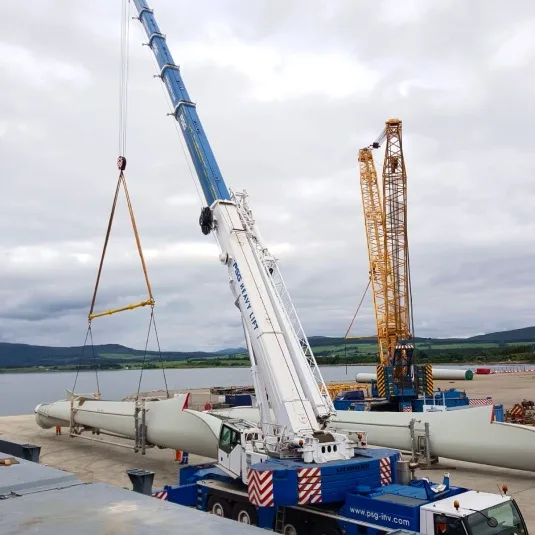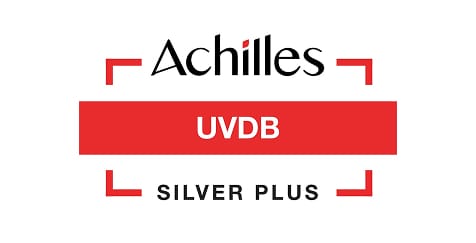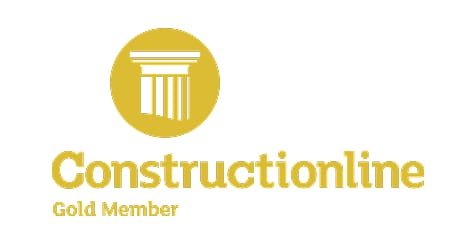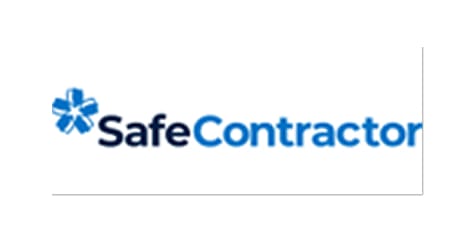Content
Selecting the right crane for a construction project is not just a logistical choice but a pivotal decision that can influence everything from safety standards and timelines to overall costs. In an industry where efficiency and precision are non-negotiable, making an informed crane selection is crucial to maintaining project momentum and avoiding unnecessary delays.
With the increasing demand for rapid construction and 24 7 crane hire services, the UK crane hire market has grown substantially. According to a recent report by AMA Research, the UK crane hire sector is expected to reach £1.5 billion by 2026, driven by infrastructure development and complex commercial builds. Against this backdrop, choosing the right lifting equipment has become more complex and more critical than ever before.
Understand Your Project Requirements First
Before looking at crane sizes or types of cranes available, it’s essential to start with your project’s fundamentals. The nature of your project directly affects which crane will work best.
Key considerations include:
- Type of build: Is it a residential home, high-rise office block or an industrial plant?
- Material weight and size: Know the heaviest and most awkward item you need to lift.
- Reach and height: What is the furthest distance and tallest point that needs access?
- Job duration: Long-term projects may justify more permanent crane installations.
- Site accessibility: Urban environments often require compact, manoeuvrable cranes.
Failing to assess these details at the start often leads to hiring unsuitable equipment, increasing costs and safety risks.
Types of Cranes and Their Uses
There is no one-size-fits-all approach when it comes to crane selection. Each crane has specific capabilities and is designed to address unique job site challenges.
Tower Cranes
- Commonly used on high-rise construction sites.
- Fixed to the ground or mounted on buildings.
- Capable of lifting heavy loads to extreme heights.
Mobile Cranes
- Highly versatile with fast setup.
- Ideal for short-term projects and multiple locations.
- Limited in reach compared to tower or crawler cranes.
Crawler Cranes
- Mounted on tracks for improved stability.
- Suitable for uneven or soft ground.
- Large lifting capacity but slower to relocate.
All Terrain Cranes
- Combine the mobility of truck cranes with off-road capability.
- Used across multiple terrain types.
- Quick mobilisation with good lifting capacity.
Rough Terrain Cranes
- Purpose-built for challenging, rugged conditions.
- Compact but powerful, ideal for remote sites.
Boom Trucks
- A truck-mounted crane ideal for light to moderate lifts.
- Useful for lifting materials to upper floors or rooftops.
Hydraulic Truck Cranes
- Quick to deploy and reposition.
- Excellent choice for short-term, lower load projects.
Carry Deck Cranes (Mini Cranes)
- Compact design allows for indoor operation.
- Perfect for industrial plants and tight working areas.
Crane Sizes: Matching Capacity to Need
Crane sizes are often misunderstood. It’s not just about how big the crane looks but about its operational capabilities.
Factors influencing crane size selection:
- Maximum lifting weight.
- Radius of lift (horizontal distance from crane base to load).
- Boom length and angle.
- Height clearance on site.
Referring to the crane’s load chart is essential. This chart provides detailed lifting capacities based on boom length and load radius. For example, a 100-tonne crane may only lift 10 tonnes if the boom is fully extended horizontally.
Choosing the Right Partner
Whether you are working in Aberdeen, Inverness or more remote areas such as Thurso or Stornoway, selecting the right crane hire company is vital. Services like crane hire Aberdeen continue to grow in demand due to the city’s ongoing commercial and offshore developments. Choosing a provider with strong local knowledge and the right fleet for your region can streamline site logistics and reduce project delays.
Look for companies that:
- Operate 24 7 crane hire services.
- Have a well-maintained and diverse fleet.
- Employ certified and experienced operators.
- Offer CPA Contract Lift options (where the provider takes full responsibility for the lift).
- Conduct on-site assessments.
Reputable firms should also assist with lift planning, risk assessments and regulatory compliance, providing peace of mind for project managers.
Safety is Non-Negotiable
Lifting operations are high-risk activities and safety should never be compromised. According to the Health and Safety Executive, construction accounts for 26% of all workplace fatalities in Great Britain, with lifting incidents continuing to pose a significant hazard. According to the Health and Safety Executive (HSE), lifting incidents continue to be a significant contributor to fatal and serious injuries on UK construction sites.
Key safety measures:
- Certified and trained crane operators.
- Pre-lift planning and site-specific risk assessments.
- Load stability and proper rigging.
- Wind, weather and ground condition checks.
Using the wrong crane can lead to tipping, load dropping or even structural failure. Choosing the right equipment and operator significantly reduces these risks.
CPA Hire vs CPA Contract Lift
When working with a crane hire company, you’ll often need to choose between two crane models available:
CPA Crane Hire
- Client supplies the operator and supervises the lift.
- Client assumes legal liability and operational responsibility.
CPA Contract Lift
- The CPA contract lifting hire company provides the crane, operator and full lift management.
- Includes lift planning, method statements and insurance.
If your site team lacks lifting expertise, a contract lift is generally the safer and more compliant route.
Consider Job Duration and Transport Logistics
Larger cranes like tower or crawler types require significant setup time. If your project is short-term or fast-moving, a mobile or all-terrain crane might be more practical and well-suited.
Transport regulations also matter. Large cranes often require road permits, escort vehicles and specific route planning, particularly in congested urban zones.
Advance coordination with your crane hire experts will ensure minimal disruption.
Technical Specs and Load Charts
Understanding load charts is non-negotiable in crane selection. They help match crane performance to actual site needs and avoid exceeding operational limits.
What to check:
- Maximum capacity at various boom lengths and angles.
- Load radius and counterweight configurations.
- Setup space requirements.
- On-rubber vs. outriggers stability.
Using load charts properly prevents over-specifying or under-performing crane selection, saving both time and budget.
The Value of Expert Consultation
Even seasoned site managers benefit from expert input. Many crane hire companies offer free site surveys and technical consultations.
Experts evaluate:
- Ground conditions and access points.
- Obstructions like trees, cables or neighbouring structures.
- Required crane sizes and boom configurations.
- Weather trends and seasonal considerations.
Consulting with specialists early in the process can eliminate last-minute issues, costly rehires and compliance failures.
Frequently Asked Questions
What is the most commonly used crane type in UK construction?
Mobile cranes are versatile and the most frequently used due to their flexibility, ease of transport and suitability for a wide range of tasks. They offer rapid setup and are often the go-to solution for general construction work.
How do I determine the right crane size for my project?
Crane sizes depend on lifting capacity, boom length and the radius of the lift. Always refer to a crane load chart and choose the right crane for your construction project to ensure proper matching with your site specific requirements.
What factors affect the cost of crane hire?
The cost varies based on crane type, duration of hire, location, transport logistics and whether you opt for CPA Hire or CPA Contract Lift. Projects with limited access or requiring specialised cranes may cost more according to the specific requirements of your project.
Can cranes operate in poor weather conditions?
Crane operations are highly sensitive to weather, especially high winds. Most crane hire companies will suspend lifting operations if wind speeds exceed safe limits defined by the crane manufacturer.
Is a site survey always necessary before crane hire?
Yes, especially for complex or high-risk lifts. A professional site survey ensures the correct crane you choose and all safety and logistical concerns are addressed in advance.
What is a load chart and why is it important?
A load chart is a technical document provided by the crane manufacturer detailing the lifting capabilities at various boom lengths and angles. It ensures the crane is used within safe parameters.
Are there regulations around crane use in the UK?
Yes. Crane operations must comply with the Lifting Operations and Lifting Equipment Regulations 1998 (LOLER). This includes operator certification, regular maintenance and thorough planning of all lifts.
Should I choose CPA Hire or CPA Contract Lift?
If your team lacks lifting expertise or if the lift is particularly complex, CPA Contract Lift is usually the safer and more compliant choice. It shifts legal and operational responsibility to the crane hire company.
Smart Crane Selection is Smart Project Management
Choosing the right crane is not a one-off decision but a calculated strategy that influences productivity, budget, and safety. With many types of cranes and crane sizes available, aligning your equipment choice with project-specific requirements is vital.
By working with an experienced crane hire specialists and understanding both operational limits and logistical challenges. You can making the right choice that move your project forward instead of holding it back.
Need guidance on selecting the perfect crane? Speak with a trusted crane hire partner like PSG marine & logistics who knows the ins and outs of 24 7 crane hire and can match the right machinery to your site without guesswork. For more information, call on this no 01224933720 and email sales@psg-inv.com



